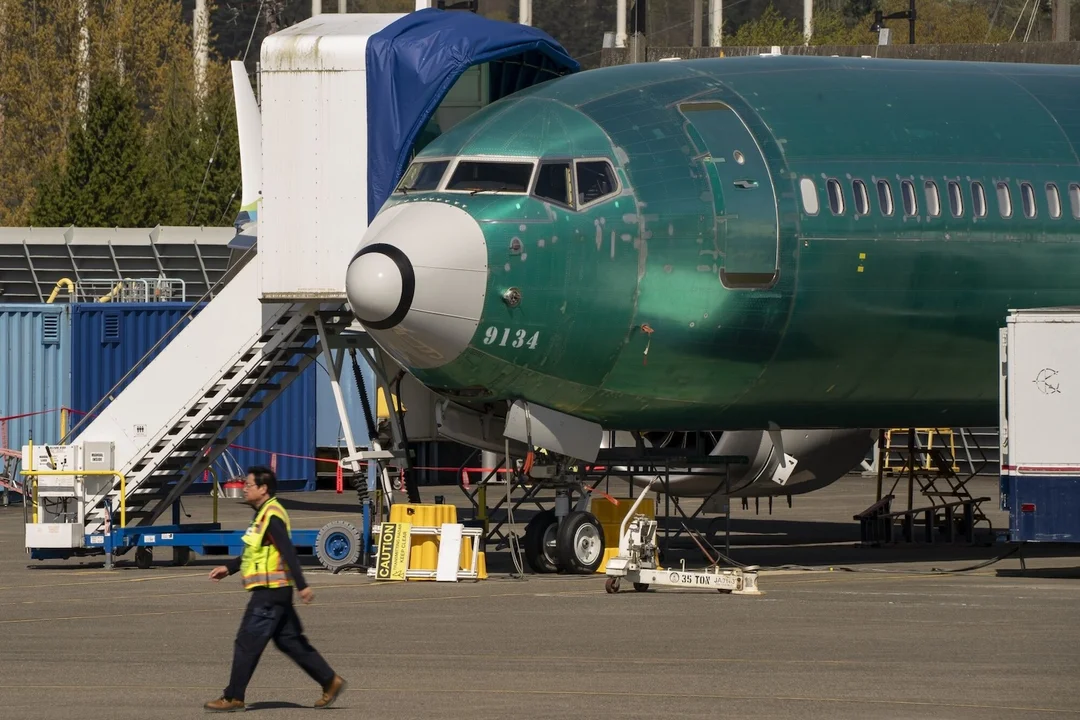
What Does the Return of a Boeing Jet Reveal About U.S.-China Trade Tensions?
The return of a Boeing 737 MAX jet from China to the United States ignites discussions surrounding the escalating trade tensions between the two countries. This incident is not only a logistical reversal for Boeing but also a significant indicator of the broader economic ramifications stemming from the ongoing tariff war initiated during President Trump's administration.

On April 19, 2025, the aircraft, designated for Xiamen Airlines in China, landed at Seattle's Boeing Field after a lengthy 5,000-mile journey which included refueling stops in Guam and Hawaii. Initially, this jet was among several waiting at Boeing's Zhoushan completion center for final assembly and delivery. However, the spiraling tariffs—where the U.S. increased rates on Chinese imports to 145% and China retaliated with a 125% tax on American goods—have led to a critical halt in aircraft transactions. The return of this Boeing jet serves as a striking representation of these larger economic tensions.
Industry experts suggest that the decision to return the aircraft could stem from a combination of logistical miscalculations and the exorbitant tariffs that could nearly double the aircraft's market value of $55 million. Analysts warn that with the uncertainty brought by shifting tariffs, several airlines might choose to delay or decline deliveries altogether, resulting in a significant backlog that could impact revenues on both sides of the Pacific.
Historically, the aerospace industry has thrived under a duty-free arrangement allowing for smooth international transactions. However, the current climate is challenging this framework, pushing companies like Boeing to confront new realities. The company's challenges come on top of a nearly five-year import freeze on 737 MAX jets due to safety concerns, leading many to speculate about the future viability of the model in international markets.
As China pushes to develop its domestic aviation industry, spearheaded by upstart manufacturer Comac, the implications of the trade war worsen. The ongoing stall in Boeing deliveries could jeopardize China's ambitions, increasing reliance on U.S. technology while simultaneously limiting its own progress in independent aircraft production. This paradox could trigger backlash, with significant ramifications for both economies if China’s restrictions on Boeing aircraft continue.
The latest development demonstrates how deeply interconnected economies bear the brunt of political decisions made far from the factory floor. As the U.S.-China relationship plunges to new lows, both parties must reconsider strategies that not only affect immediate profits but also longer-term innovation in aviation.
As this situation unfolds, what are your thoughts on the implications of tariff wars for global trade? Will this return be a rare exception or a new norm for international commerce? Share your thoughts below!
Related issues news
Did China halt boeing orders?
China halts Boeing jet orders as Trump tariffs escalate trade war.
When did China cancel boeing orders?
China halts delivery of Boeing jets — report – DW – 04/15/2025.
How many planes did China order from Boeing?
Boeing data shows 130 unfilled orders for China-based airlines and lessors, including 96 of the 737 MAX. Industry sources say a significant portion of the more than 760 unfilled orders for which Boeing has yet to name a buyer are for China.
Did China cancel Boeing orders 737 Max?
It was China that first grounded Boeing's 737 MAX jets after two fatal crashes in 2018 and 2019 killed nearly 350 people. China also suspended most orders and deliveries of the jet in 2019.